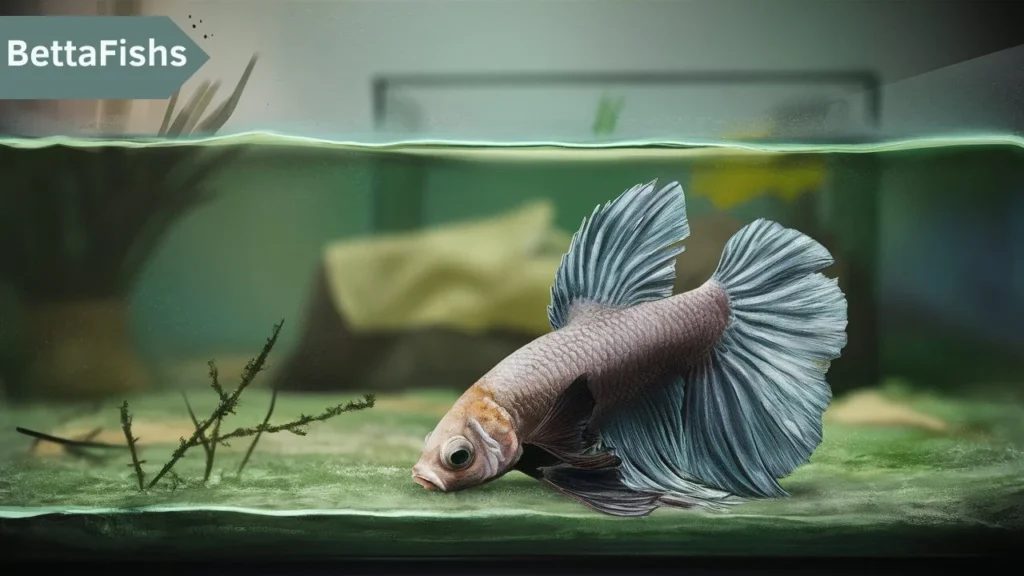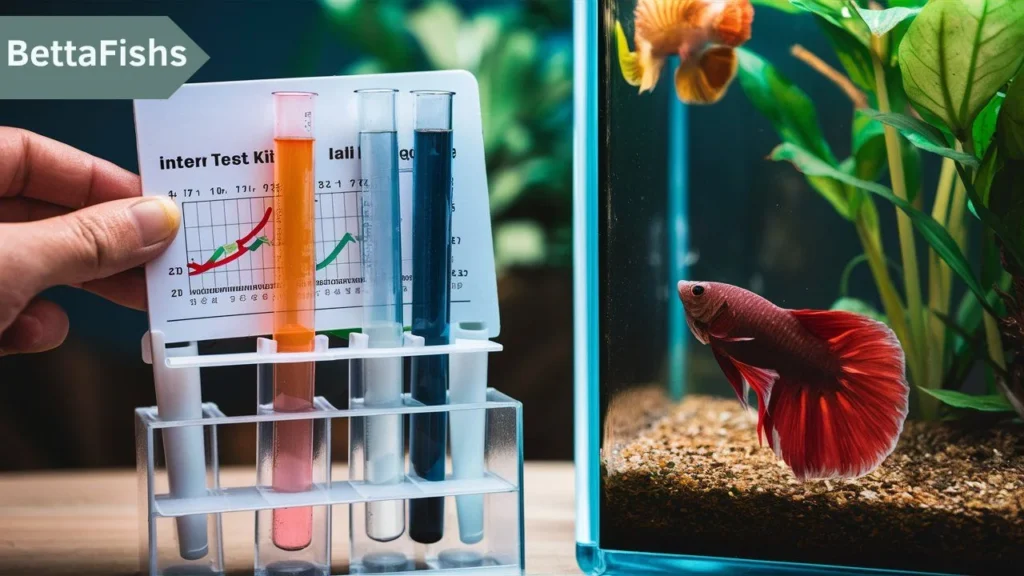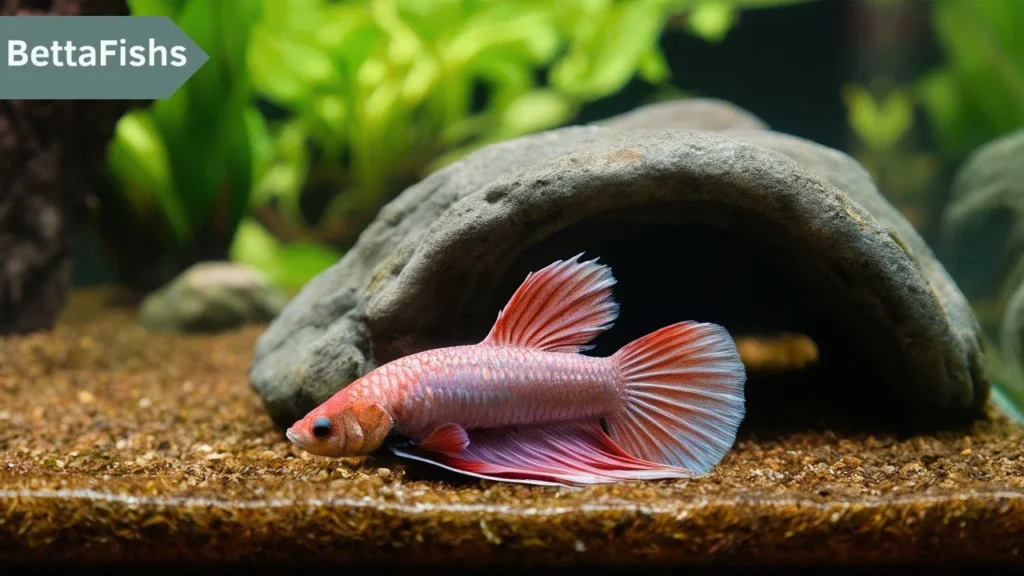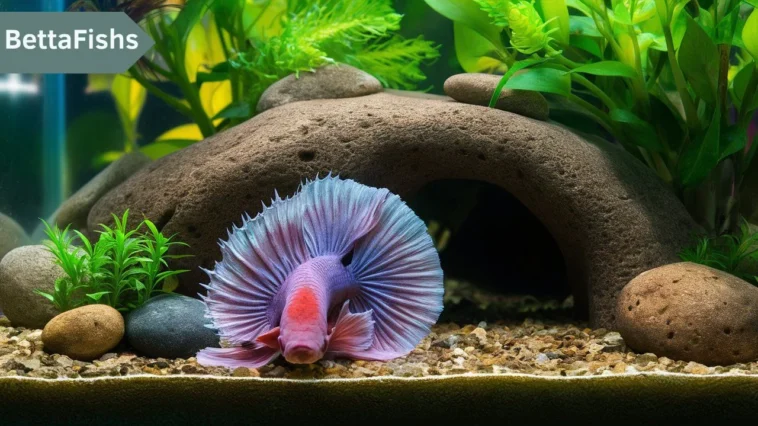Betta fish are lively creatures, so when they start spending most of their time at the bottom of the tank, it can be worrisome. There are several reasons why your betta might be exhibiting this behavior, ranging from environmental factors to health issues. Let’s dive into the most common causes and what you can do to help.
Betta Fish Behavior
Betta fish are naturally curious and active, often exploring their surroundings and interacting with their environment. However, they may occasionally rest at the bottom of the tank, which can be normal under certain conditions. The key is to recognize when this behavior is a sign of something more serious.
When to Worry About Bottom-Dwelling Behavior
If your betta fish is staying at the bottom for extended periods, appears lethargic, or shows other signs of distress, it’s time to take action. Prolonged bottom-dwelling can indicate underlying issues that need to be addressed.
Common Reasons for Betta Fish Staying at the Bottom
Stress and Its Effects on Betta Fish
Stress is one of the most common reasons betta fish stay at the bottom of the tank. Changes in their environment, such as a new tank, sudden temperature fluctuations, or poor water quality, can all contribute to stress.
Water Temperature Issues
Betta fish thrive in warm water, typically between 76°F and 82°F (24°C to 28°C). If the water is too cold, your betta may become sluggish and spend more time at the bottom. Conversely, water that’s too warm can also cause discomfort.
Poor Water Quality
Maintaining high-quality water is crucial to your betta fish’s well-being. Poor water conditions, such as high levels of ammonia, nitrites, or nitrates, can lead to various health problems, including bottom-dwelling behavior.
Illness and Disease
Illnesses such as swim bladder disease, fin rot, and parasites can cause your betta to stay at the bottom of the tank. These conditions are often accompanied by other symptoms, such as difficulty swimming, loss of appetite, and discoloration.
Old Age
As betta fish age, they naturally become less active and may spend more time resting at the bottom of the tank. This is a normal part of the aging process, and while it may be concerning, it’s not necessarily a sign of poor health.

Stress:
Causes of Stress in Betta Fish
Stress in betta fish can be caused by a variety of factors, including:
- Sudden changes in water temperature: Rapid temperature shifts can shock your betta.
- Overcrowding: Stress can result from having too many fish in one tank.
- Aggressive tank mates: Betta fish are territorial and may feel threatened by other fish.
- Improper tank setup: A tank that lacks hiding spots or has too much light can stress your betta.
How to Identify Stress in Your Betta
Signs of stress in betta fish include clamped fins, loss of color, erratic swimming, and a lack of appetite. If you notice these symptoms, it’s essential to identify and eliminate the source of stress.
Ways to Reduce Stress
To reduce stress in your betta fish, ensure that their environment is stable and comfortable. This includes maintaining a consistent water temperature, providing plenty of hiding spots, and avoiding overcrowding.
The Role of Water Temperature
Ideal Temperature for Betta Fish
Betta fish are tropical creatures that require warm water to stay healthy. The ideal temperature range is between 76°F and 82°F (24°C to 28°C). Keeping the water within this range helps prevent lethargy and other health issues.
Effects of Low or High Temperatures
If the water temperature drops below 76°F (24°C), your betta may become lethargic and stay at the bottom of the tank to conserve energy. On the other hand, water temperatures above 82°F (28°C) can cause stress and discomfort, leading to similar behavior.
How to Maintain the Right Temperature
To maintain the proper temperature, use a reliable aquarium heater and thermometer. Regularly check the temperature and adjust the heater as needed to ensure a stable environment.
Water Quality:
Parameters of Good Water Quality
Your betta fish’s health depends on having clean water. Key parameters to monitor include:
- Ammonia levels: Should be at 0 ppm.
- Nitrite levels: Should be at 0 ppm.
- Nitrate levels: Should be below 20 ppm.
- pH levels: Should be between 6.5 and 7.5.
Common Water Quality Issues
Common issues that can affect water quality include overfeeding, infrequent water changes, and the buildup of waste. These issues can lead to toxic levels of ammonia, nitrites, and nitrates, which can harm your betta.
How to Test and Improve Water Quality
Regularly test your tank’s water using an aquarium test kit. If you detect any imbalances, perform a partial water change and consider using water conditioners to neutralize harmful chemicals.

Illness and Disease
Signs of Common Betta Fish Diseases
Some common diseases that may cause your betta to stay at the bottom of the tank include:
- Swim bladder disease: Causes difficulty swimming and buoyancy issues.
- Fin rot: Leads to frayed fins and discoloration.
- Parasites: Can cause itching, lethargy, and loss of appetite.
How to Diagnose and Treat Illnesses
If you suspect your betta is ill, observe their behavior and physical appearance closely. Consult a veterinarian or a reputable aquarium store for guidance on diagnosis and treatment. Many diseases can be treated with over-the-counter medications or changes in water conditions.
Preventative Measures
Preventing illness is always better than treating it. Keep your tank clean, maintain good water quality, and provide a balanced diet to keep your betta healthy and happy.
Old Age:
Life Cycle of a Betta Fish
Betta fish typically live for 3 to 5 years, although some may live longer with proper care. As they age, their activity levels decrease, and they may spend more time resting at the bottom of the tank.
Signs That Your Betta May Be Aging
Common signs of aging in betta fish include faded colors, reduced activity, and a slower response to stimuli. While these signs can be concerning, they are a normal part of the aging process.
How to Care for an Older Betta
To care for an older betta, ensure their tank is easily navigable with low water flow and plenty of resting spots. Providing a high-quality diet rich in nutrients can also help support their health as they age.
Solutions to Help Your Betta Fish
Improving Tank Conditions
Start by assessing your tank setup. Ensure the water temperature and quality are within the ideal ranges, and consider upgrading your tank if it’s too small.
Diet Adjustments
Feed your betta a balanced diet of high-quality pellets, and live or frozen foods, and avoid overfeeding. A varied diet can improve their health and activity levels.
Enrichment Ideas for a Happier Betta
Introduce new elements to the tank, such as plants, caves, or toys. Interactive objects like floating mirrors can stimulate your betta and reduce boredom.

Preventing Future Issues
Regular Tank Maintenance
Perform regular water changes, clean the tank and decorations, and monitor water quality to prevent future issues. A well-maintained tank is essential for your betta’s health.
Observing Your Betta’s Behavior
Keep a close eye on your betta’s behavior and look for any signs of distress or illness. Early detection is key to addressing problems before they become serious.
Keeping a Healthy Environment
Ensure your betta’s tank is set up to meet their needs, including proper temperature, water quality, and enrichment. A healthy environment is the best way to prevent bottom-dwelling behavior.
Conclusion
If your betta fish is staying at the bottom of the tank, it’s essential to identify the cause and take action to improve their environment. Whether it’s due to stress, water quality, illness, or aging, understanding the underlying issue is the first step to helping your betta thrive. By providing the right care, you can ensure your betta remains active, healthy, and happy.
FAQs
1. Why is my betta fish lying on its side?
Your betta fish may lie on its side due to swim bladder disease, poor water quality, or old age. Check the water parameters and consider adjusting their diet.
2. Can betta fish recover from staying at the bottom of the tank?
Yes, betta fish can recover if the underlying cause is addressed, such as improving water quality or treating illness.
3. What should I do if my betta fish is not eating?
If your betta is not eating, check the water temperature and quality, and consider offering different types of food. If the problem persists, consult a veterinarian.
4. How often should I clean my betta’s tank?
It’s recommended to perform partial water changes weekly and a full tank clean every month to maintain good water quality.
5. Is it normal for betta fish to rest at the bottom?
Occasional resting at the bottom is normal, but if your betta is constantly staying there, it may indicate a problem that needs attention.




